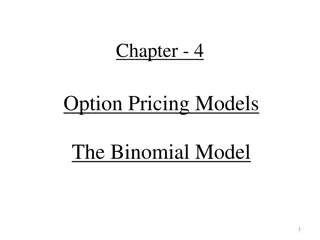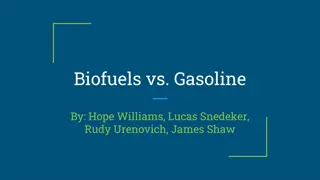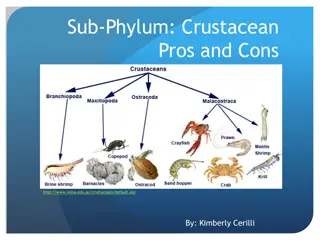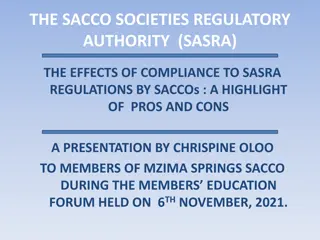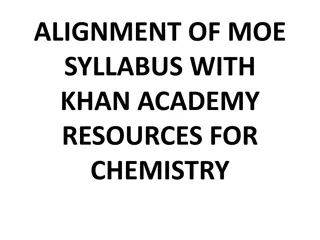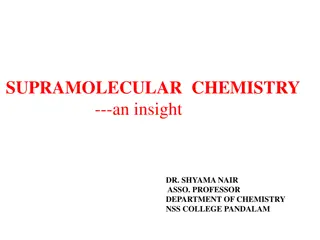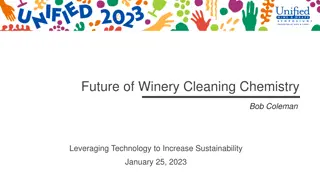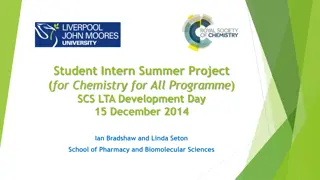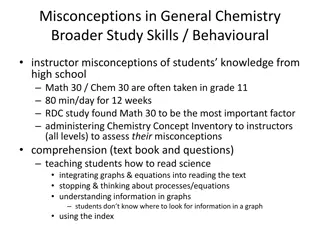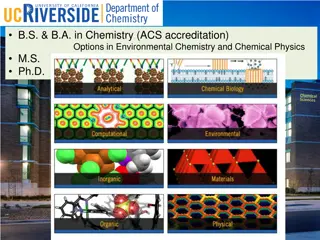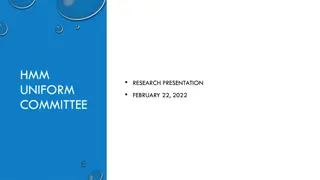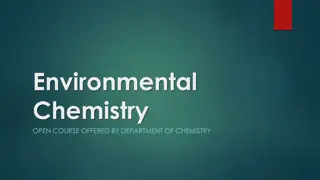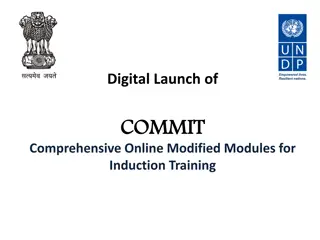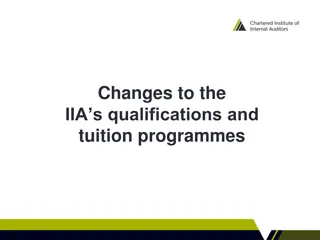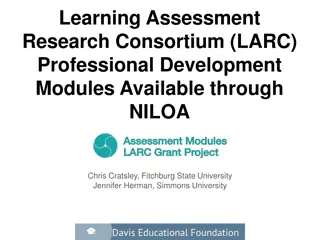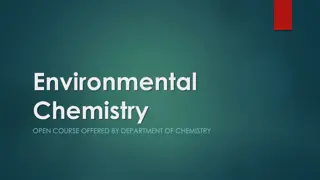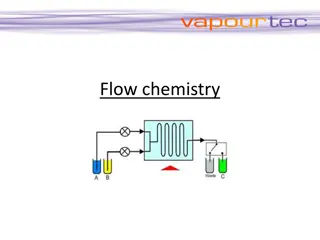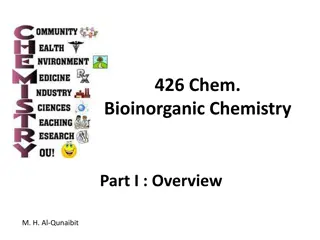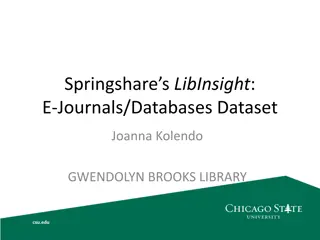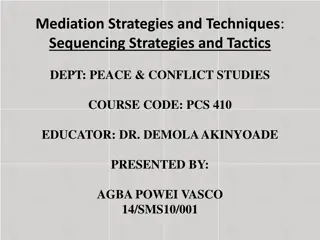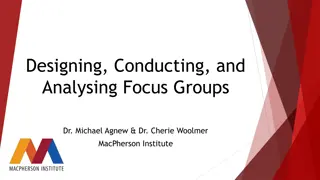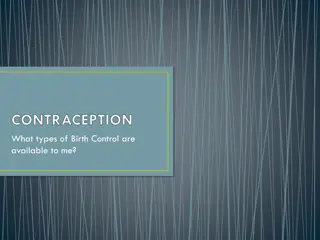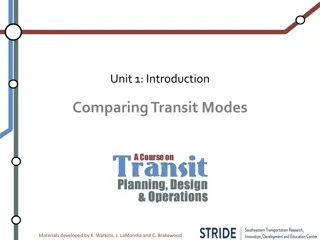The Pros and Cons of Option Modules in Chemistry Education
Exploring the advantages and disadvantages of offering option modules in chemistry education, this content discusses the impact of choices on students and educators. Delving into core options, marketing strategies, and the benefits of specialization for students, it also highlights the drawbacks such as reduced education quality and challenges in student experience and assessment.
Download Presentation

Please find below an Image/Link to download the presentation.
The content on the website is provided AS IS for your information and personal use only. It may not be sold, licensed, or shared on other websites without obtaining consent from the author. Download presentation by click this link. If you encounter any issues during the download, it is possible that the publisher has removed the file from their server.
E N D
Presentation Transcript
The pros and cons of option modules Victor Chechik Department of Chemistry
Do we need choice? A supermarket in Soviet Union A modern supermarket EGGS Small, medium, large, free range, duck, brown, caged
Having choice IS a blessing but: Sometimes it is easier if somebody else decides for you With choice comes responsibility; If you made the choice, there is nobody to blame.
What are options, and what is core? Core Options Examples. Basic knowledge that every chemistry graduate needs to have Explained in text books Material does not change quickly over the years Similar curriculum in different Universities Not essential knowledge, usually linked to research Often no textbooks The area could develop or go out of fashion fairly quickly Different choice in different Universities Core: Transition metals Option: Atmospheric chemistry
Pros of options An opportunity for students to specialise and learn about cutting edge research, hopefully from research leaders; Students can learn the topics that really interest them; An opportunity for staff to teach subjects close to their hearts. Any other pros?
Cons of options Unwise choice of options reduces quality of education; Difficult to achieve comparable student experience in different options; Variability of assessment in different options; Unrestricted student choice = bad timetable; Unpredictable class sizes complicates planning; Very small class size = inefficient use of resource; Restrictions on course transfer upsets students more than lack of options; 10 credit options = fragmented course, too many exams; Synoptic examinations later in the course may advantage students who have done certain options; Break established student groups (as they attend different options). Chemistry y2: almost unrestrited choice of 3 out of 7 options mean 9am 6pm timetable Mon-Fri with gaps
Electives vs Options Solves some problems associated with options (resource efficiency, small class size, no impact on synoptic assessment); Mandatory in some competitor Universities; But in most cases this means going outside of the chosen discipline! Timetable clashes inevitable; Introduces new issues, e.g., disadvantaged compared to home students.
Current structure of the Chemistry course Year 1 all compulsory; Year 2 three 10 cr options in Spr-Sum, choice from 7, almost unrestricted; Year 3 two 10 cr options in Aut (restricted choice from 8) and one in Spr-Sum, choice from 4; Year 4 (York) 10 cr option in Aut (choice from 4) and 10 cr option in Spr-Sum, choice from 4; Year 4 (Abr/Ind) 20 cr long distance, choose 3 topics from 5. Very complex structure hard to work out requirements for the named degrees.
What about our competitors? Most competitors do not advertise the details. Durham (MChem). Y1: 40 credits of electives; Y2: one 20 cr option (out of 3?); Y3: two 10 cr options out of three, two 10 cr practicals out of three, two 20 cr options out of four. Sheffield (MChem): options only in Y4? Bristol (MChem): Y1 one 20 cr elective; Y3 two options out of three. Manchester (MChem): Y1: two 10 cr electives; Y2 and Y3: two 10 cr electives that include 1 or 2 options; Y4: 6 10 cr options out of 12. Informal RSC information: our current course offers more options than most competitors.
The way forward: Chemistry new course Most options 20 credits; Hard link between the option and degree title (e.g., 4 degree titles, 4 options in y2, 4 options in y3); For M-level students, additional 10-credit options for the whole cohort in y3; For M-level students, additional distance-learning topics in y4.
New course in Chemistry Year Autumn Spring/Summer 1 Core 1 (30 credits) Core 2 (30 credits) + Core 3 (30 credits) Skills for Chemists (10 credits). Practical chemistry (20 credits). 2 Core 4a (20 credits) + Core 4b (20 credits) Core 5 (30 credits) + Core 6 (30 credits) Options (20 credits each). Choose 1 from 4; linked to programmes 3 Core 7 (20 credits) + Core 8 (20 credits) + Core 9 (20 credits) Options (20 credits each). Choose 1 from 4; linked to programmes BSc only: Research project (40 credits) MChem only: Advanced Practical Research Training (20 credits) MChem only: Options (10 credits each). Choose 1 from list A (3 options) and 1 from list B (3 options). 4 Advanced research project (90 credits) + Literature review skills (10 credits) Core 10 (20 credits). Includes distance learning (15 credits, linked to programmes) and synoptic examination (5 credits)
Impact of changes on academics Options are updated to match staff research interests; Fewer options mean significant reduction in staff workload however significant initial effort; Much easier administration of options; Reasonable class size.
Have we asked the students? Student reps were involved in discussion at Teaching Committee and Board of Studies. The course structure is much cleaner and hopefully easier to understand for the students (this has been an issue). The choice is straightforward. Overall, fewer options mean less choice. Fewer assessment points.
Anything left to discuss? Current good practice in other Departments and any planned improvements; Any other pros/cons of options; any magic solution to counter-balance the cons; Options vs mandatory electives;


